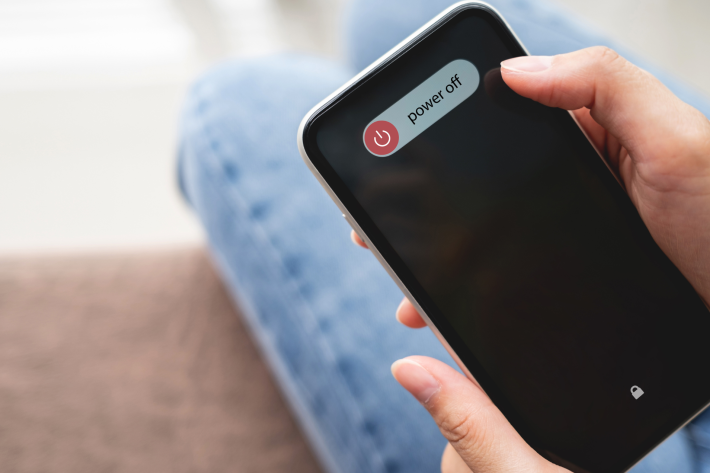What can you achieve in an hour?
28 February 2024

What a Difference an Hour Makes
The first day of January 1959 saw the release of Dinah Washington’s jazz classic, “What a Diff’rence a Day Makes”, a song which celebrates the joy that love brings into the singer’s life. The iconic lyrics still feel relevant to our daily lives sixty five years later as we can all appreciate the pleasure of seeing a rainbow after stormy skies and enjoy ‘the sun and the flowers, where there used to be rain’.
As we approach Earth Hour on 23 March 2024, why not see what a difference an hour makes? What can you achieve in just 3,600 seconds? This blog looks at how just one little hour of focused activity can bring about real and meaningful change to your life – and the planet. An hour can really make the world of difference.
New season, new you
The day length increases from nine hours and six minutes on 1st February to 10 hours 53 minutes on 31st March so why not make the most of the change in the season and longer daylight hours by spending time in nature? Take an hour to appreciate the natural world with a walk outside: breathe deeply, listen to the birds and pay close attention to what you can see around you. Fresh air is good for you, and the break from your work or regular routine can help to bring space for reflection or new thinking to take back to your day and bring energy to that task you’ve been avoiding. And, with the clocks moving on an hour on 31st March, sunrise and sunset will be an hour later so we can spring forward with even longer evenings to enjoy.
The lighter mornings present the perfect opportunity to change up your daily commute and switch the car or bus for a walk, cycle or wheel. Check out our Travel Less by Car page for more inspiration on active travel that can be fitted easily into your day and is cheaper than a gym membership. Just a few extra minutes a day moving your body can soon add up to an hour and really benefit your wellbeing as well as upping your step count.
Doing more exercise isn’t always everyone’s idea of fun, but find something that you enjoy and layer on other pleasurable activities such as listening to a podcast or audiobook at the same time. Choose a listen that will challenge you, or even take the time to learn a new language, and the hour will fly by.

Micro joys + minimum time = maximum benefit
The key to finding that hour in your busy day is to keep it small at first and build from there, a few minutes at a time. Making little changes in your life and breaking your time up into manageable chunks can have a hugely positive effect as BJ Fogg details in his bestselling book “Tiny Habits”. He suggests focusing on what is easy to change, not what is hard; or on what you want to do, not what you should do. Try this technique at work and at home to bring yourself joy, by turning your attention to what is achievable. For example, take ten minutes away from your desk to clear your head and reflect on that thorny problem you’re trying to solve, rather than staring at the screen hoping for inspiration. Or take time to reflect on the good things in your everyday life – thinking about ‘micro joys’, whatever they are to you, can release dopamine, the “feel good” hormone which as well as making us feel happy also improves our memory, problem solving skills, sleep and attention span. Win, win!
Turn off, tune in
Smart phones are an integral part of many people’s lives, but can also be a huge distraction, eating up hours of our time. Many of us would struggle to imagine a day without phone in hand, but why not try switching off for just an hour and using the time for something else?
There’s a compelling case for doing just that, and the benefits of this change can be huge: better sleep, increased wellbeing and happiness, reduction in stress.
Why not swap the alarm on your phone for a regular clock and see if you can get out of bed with more energy in the morning? Change your routine of doomscrolling before going to sleep by picking up a book or listening to music instead? Make the commitment to set the phone aside one you share with your family so that you can engage together at meal times for example. Could you spend time volunteering? The mutual benefits for you and the person or organisation you support can be meaningful and far-reaching.
Simply deciding to switch off, even for an hour, can make a huge difference. If that feels unachievable, try five minutes at first, and work your way up to sixty.

Switch off and Give an Hour for Earth
Since its beginnings in 2007, Earth Hour has been known for the “lights off” moment – a symbolic event to show collective support for the planet. This year the mission is to create the Biggest Hour for Earth, considering the question of could an hour change the world? What if an hour wasn’t just an hour, but the spark we need for change? An hour reminding us to make all the other hours count.
If this blog has inspired you to embrace change, why not Switch off and Give an Hour for Earth on Saturday, March 23rd at 8:30 pm your local time. Together, let's create the Biggest Hour for Earth.
After all, Dinah said it best: “What a diff’rence a day made. And the difference is you”.
Visit our Take Action page for more ways that you can make that hour count.